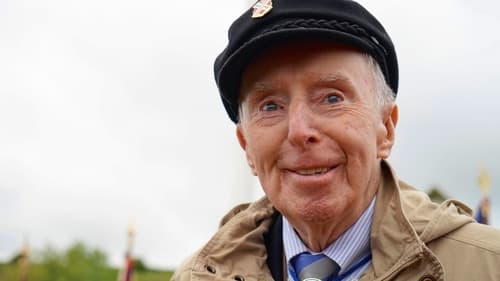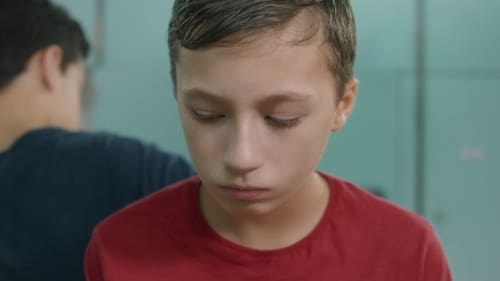
The Chaplain: MAJ Brenda Threatt (2023)
A military chaplain's journey of faith and service weaves a compelling tapestry of spirituality, racial identity, and community, as she inspires others to overcome obstacles and make the world a better place, one good deed at a time.
ジャンル : ドキュメンタリー
上映時間 : 9分
演出 : Jesse Collier Sutterley
シノプシス
In a profound exploration of faith, service, and identity, this documentary film follows Brenda Elizabeth Threat, an ordained minister in the African Methodist Episcopal Church and a military chaplain in the California State Guard. Born in Los Angeles, Threat's story is a captivating tapestry of her spiritual journey, her tireless advocacy for veterans, her innovative response to 9/11, and her reflections on race and personal integrity. Her life is a testament to the power of perseverance, love, and community. Guided by a commitment to education and a mission to help others be the best they can be, her story is a soul-stirring reminder that each of us has the potential to make the world a better place, one good deed at a time.

In The Singer: A Montford Point Marine, the enthralling journey of Henry Charles Johnson, one of the first African Americans in the U.S. Marine Corps, unfolds. Lured by the dignified Marine uniform and the allure of the G.I. Bill, he's abruptly thrown into the bare, segregated world of Camp Montford Point, a far cry from the lush expansiveness of Camp Lejeune he'd imagined. The harsh realities of Southern segregation strike a jarring contrast to his accustomed diversity of Manhattan, escalating further with hostility from drill instructors. Undeterred, his resolve is galvanized by the dream of donning the Marine uniform and the prospects following discharge. Post-discharge, Johnson immerses himself in New York's music scene, enchanting audiences with his soulful, Sinatra-esque timbre. This riveting narrative portrays the unmatched fortitude of the Montford Point Marines, representing a crucial African-American, American, and globally relevant human experience.

In a time when America was on the brink of modernization, Carson "Skeeter" Bigbee emerged from rural Oregon to become an embodiment of national transformation. Born to working parents in 1895, Bigbee’s life as a multi-sport athlete, a baseball star with the Pittsburgh Pirates, a World War I enlistee, and a World Series hero, intersected with America's Progressive Era, the electrification of society, the First World War, and the onset of the Great Depression. His story, from hitting the decisive run in the 1925 World Series to managing in the American Girls Professional Baseball League, is a poignant reflection of ambition, patriotism, and the resilient spirit of an ever-changing nation in the early 20th Century.

In this dynamic and dramatic short film, an African American veteran takes us on an extraordinary journey through his life. From a chance visit to the Pentagon, to growing up in a vibrant integrated neighborhood, his story is one of resilience and inspiration. Fueled by the determination to seize educational opportunities, he enlists just in time to experience the racial divisions of his era before Truman desegregates the military. Thrust into the brutality of the Korean War, the weight of combat becomes an indelible part of his soul. Returning home, he embarks on a new path as an architect and discovers unexpected connections in far-off Pakistan. As his family expands, his sons reflect on the man who raised them and the legacy he instilled. This film unearths the essence of the Black experience in the early 20th century, paints a vivid portrait of the Chosin Reservoir, and unravels the intricate tapestry of race, family, and personal growth.

In 1866, as the U.S. modernized its military, the Army Reorganization Act allowed Native Americans to enlist as scouts, heralding a profound era of change. Amidst this backdrop, the film unfolds the story of Baptiste Garnier, a half Oglala Sioux, half French-Canadian scout known as "Little Bat." Torn between his Sioux roots and his U.S. allegiances, he navigated the brutal Indian wars and was at the heart of pivotal battles, including the tragic Wounded Knee massacre. Although perceived as a bridge between two worlds, Baptiste's duality often led him to make heartbreaking decisions. By the time of his untimely death in 1900, shot by a white bartender over a bar tab dispute, he epitomized the complex weave of identity and legacy, raising questions about the cost of serving two peoples in a divided America.

An extraordinary tale of resilience unfolds against the backdrop of intense political rivalry and media scrutiny. Joanne Conte, the indomitable child of Italian immigrants, weathers the storm of public vilification as her past is unceremoniously plastered across the front pages of Colorado papers and on The Maury Povich Show. Yet, this assault on her character is not enough to halt the unwavering march of her life of service. She breaks barriers as the first transgender person to be elected to a city council in U.S. history, but her identity extends far beyond this groundbreaking accomplishment. As a valiant soldier, an impassioned activist, and a tenacious politician, Conte carves out a formidable legacy. This is an emotionally charged and evocatively detailed portrait of Joanne Conte, a multifaceted individual who lived her life far beyond the simplistic narratives of headlines.

In the poignant and thought-provoking short film, a distressed mother, Velda, takes center stage as she recounts the tragic tale of her son, Michael, who battles inner demons after being sent to war. As she navigates through the gut-wrenching chronology of his enlistment on the eve of 9/11, his traumatizing experiences in combat, and his futile attempts at readjustment after returning home, the narrative unravels to reveal the silent and insidious toll of war on the mental health of soldiers. Compelled by her son's devastating suicide, Velda transforms her grief into a call for action, articulating her concerns about the military's approach to mental health issues in a letter to the president. This heart-rending short film underscores the often overlooked consequences of war, giving voice to those left in its devastating wake.

Buffalo Soldiers: George Jordan and the Indian Wars is a poignant examination of the marginalized history of the Buffalo Soldiers - African American servicemen who bravely served in numerous conflicts, only to face scorn, ridicule, and suppression of their stories back home. The film's epicenter is George Jordan, a formerly enslaved man turned soldier, whose exemplary courage in battles etches a stark contrast against his forgotten legacy. Juxtaposing the resistance of Apache Chiefs and braves with Jordan's unwavering will to protect his comrades and white settlers, the narrative challenges us to reconcile with the oft-overlooked aspects of the formation of the West. With a stark reminder of Jordan's decline due to his heroic yet under-acknowledged efforts, the refusal of the Army to provide him with care, the film crescendos into a plea for recognition of the Buffalo Soldiers, ultimately asking us what we can give to make our country better, inspired by these unsung heroes.

A young filmmaker joins a tour of WWII veterans from the 29th Infantry through celebrations surrounding the 70th anniversary of D-Day in a quest to better know her late grandfather.

At the core of these memories is Kcey, a spirited young woman of Puerto Rican and African American heritage. Her infectious spirit and uniquely endearing laugh became her signature, filling every room with infectious energy and joy. As a child, Kcey's spirited antics foreshadowed her future strength; she later emerged as a formidable member of the Air Force. Recollections from her mother, father, sister, childhood friend, and a battle buddy capture the essence of Kcey, from her infectious laughter to her cherished moments under the Afghan sunsets. Each memory serves as a testament to a life lived passionately. However, heartbreak strikes when, amid war, a plane crashes, claiming Kcey's life. As they grapple with this devastating loss, her loved ones oscillate between despair and denial, occasionally seeking refuge in work or the numbing embrace of alcohol. Yet, as they collectively mourn, they discover solace in their shared memories of Kcey's radiant spirit.

In the midst of World War II's turmoil, the quaint British town of Bury St. Edmonds becomes a focal point where lives intersect and secrets unravel. An 18-year-old woman, finds herself caught in the throes of a great wartime secret – the breaking of the German Enigma code. Her recruitment into the "Ultra" program brings her to the heart of Bletchley Park's most clandestine operations, where Alan Turing and his team forge the world's first computer in a bid to crack the ever-changing German codes. Every day, she grapples with the weight of the secret, so profound that even her family is oblivious to her covert role. Meanwhile, she captures the heart of an assertive American soldier and their whirlwind wartime romance culminates in a heartwarming union, facing the challenges of the Official Secrets Act. The soldier, persistent and deeply in love, goes to great lengths, in order to secure her release from the program and to solidify their commitment to one another.

Set against the backdrop of the repeal of the "Don't Ask, Don't Tell" policy, the film chronicles the journey of Lt. Col. Linda Campbell, an Air Force veteran who grappled with hiding her true self during her service tenure. While the national policy shift towards LGBTQ+ rights marks a progressive era, Linda's personal story serves as a powerful testament to the individual battles fought in the shadows of such policies. Subjected to suspicion, prejudice, and threats from her comrades due to her perceived homosexuality, Linda's resilience remain undeterred. Her unwavering love and commitment to her partner, Nancy Lynchild, culminate in a poignant milestone: their eternal rest together in Willamette National Cemetery. Intertwined with this narrative is the account of Linda's brother, Bob Campbell, who delves into their family's conservative roots, Linda's tumultuous coming out, and the eventual familial reconciliation that showcases the transformative power of love and understanding.

A shell-shocked black soldier is cared for by a miner and his daughter when he wanders into their camp, and makes a fresh start in life with the aid of the American Legion.

When a Catholic and a Jew wed they find themselves disowned by both of their families.

It is the end of the swimming class. Jules and Noam, 12 years, have dawdled in showers and end up alone in the cloakrooms of the swimming pool.

An overview of the making of Wolf Creek (2005).





